Kissing and Making Up:
Welcome to parshas Vayigash, the Oisvorfer’s bar mitzvah parsha. A birthday -oy vey- is not too many days away. So much to discuss in this emotionally charged parsha, ober, let’s begin with a place called Goshen. This is our 6th time around Vayigash, a more emotional parsha you will be hard pressed to find. Check out the archives at www.oisvorfer.com for givaldige insights on most of the major storylines. New for 2015, we will look a shtikel deeper into Goishen and space permitting, will also touch upon the givaldige lessons learned from the way Yoisef and his brothers reconciled.
How many times have you or I passed a place called Goshen, New York or, any other place with that name? Mistama too many to mention. Going back kimat 50 years, on mamish every drive up to the Catskills -first as a starry-eyed 13 year old kid on his way to camp Adas Yereyim where the Oisvorfer ran the canteen, and then for many more years on the way to Grossingers, The Homowak, The Concord, Kutchers, and other hotels (may they all rest in peace) that were kosher for a time and catered to the singles scene. And for the last 28 years on my way up to Camp Seneca Lake to visit the shver, shviggermeister (mother-in-law) and the kids. All told, hundreds of times. What’s there in Goshen? Ver veyst? So happens that I’ve never stopped off in Goshen but yearly as I pass the sign over the summer months, I have wondered if its name was inspired by the Goishen which gets 9 direct, and several referenced Toirah shout-outs in this week’s parsha (and a few more in Shemois.) What about this place Goishen?
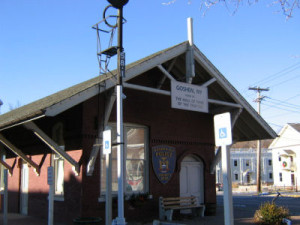 Nu, to chap what role Goishen played for the Yiddin, let’s start by chazzering (reviewing) what takes place just before its first mention. After a shtikel confrontation with Yehudah -he the brave outspoken representative of the holy brothers- who spewed forth a few harsh words and maybe even veiled threats (so says Rashi) towards his younger brother Yoisef, the time had come to reveal himself. You can find that exchange in the very first pisukim of the parsha. Yoisef will respond by blurting out what many consider to be the five most emotional words in the gantze heylige Toirah. With the words ‘Ani Yoisef, Ha’oid Ovee Chai (I am Joseph, is my father still alive), Yoisef will reveal himself to his very stunned and petrified brothers. Rashi, who else, will tell us that because they didn’t believe or want to believe him, Yoisef revealed himself -mamish- by exposing his mila (proving that he, like they, was circumcised). Why he couldn’t just give a few other hints, ver veyst. Grada, we mentioned this factoid just last week. Seemingly, all the brothers shared that special moment. The long lost brother, they sold into slavery 22 years ago is alive; they are finally reunited. We will talk more about the reunification, the kissing and crying, and the lessons learned from Yoisef’s carefully chosen words. Ober ershtens…
Nu, to chap what role Goishen played for the Yiddin, let’s start by chazzering (reviewing) what takes place just before its first mention. After a shtikel confrontation with Yehudah -he the brave outspoken representative of the holy brothers- who spewed forth a few harsh words and maybe even veiled threats (so says Rashi) towards his younger brother Yoisef, the time had come to reveal himself. You can find that exchange in the very first pisukim of the parsha. Yoisef will respond by blurting out what many consider to be the five most emotional words in the gantze heylige Toirah. With the words ‘Ani Yoisef, Ha’oid Ovee Chai (I am Joseph, is my father still alive), Yoisef will reveal himself to his very stunned and petrified brothers. Rashi, who else, will tell us that because they didn’t believe or want to believe him, Yoisef revealed himself -mamish- by exposing his mila (proving that he, like they, was circumcised). Why he couldn’t just give a few other hints, ver veyst. Grada, we mentioned this factoid just last week. Seemingly, all the brothers shared that special moment. The long lost brother, they sold into slavery 22 years ago is alive; they are finally reunited. We will talk more about the reunification, the kissing and crying, and the lessons learned from Yoisef’s carefully chosen words. Ober ershtens…
Since we mentioned Goishen and because many of you mistama also pass Goishen quite often, let’s say a few words about this place and we begin by quoting a few pesukim (Bereishis 45:9-10) which state azoy: “Hurry -and go up to my father and say to him, so said your son Yoisef: G-d has made me master of all Mitzrayim. Come down to me; do not delay. You will settle in the land of Goishen and you will be near to me -you, your sons, your grandchildren, your flock, your herd, and all that is yours.”
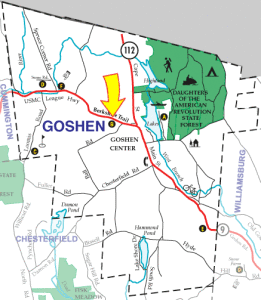 These were the instructions that Yoisef gave to his brothers. They were to relay these very words to Yaakov upon their return home. They did. Why did Yoisef select this place Goishen as a home for his father and extended family? Vus epes (Why) Goishen? Nu, lommer lernin (let’s learn) what a few had to say. Says Rashi azoy: Yoisef knew that the Mitzrim worshiped cattle as deities, hence they abhorred shepherds. Yoisef was not going to place his family in harm’s way by having them dwell among the mitzrim. Mistama he was thinking that they would be isolated in Goishen, away from the mitzrim. There, they would lead quiet lives, away from the sexual immorality and licentiousness that Mitzrayim was known for. Grada, Yoisef will later instruct his brothers to tell Paroy that they are taka mere shepherds and are not qualified to do much else. Zicher he wasn’t going to tell Paroy just how skilled Shimon and Levi were with their swords and Reuvain as a bed mover. So happens that shepherding was a respectable position back then and taka says Rabaynu Bachya azoy: the work of a cattle herder is honorable and productive. Let’s not forget that Yoisef started out as a shepherd. So did Moishe Rabaynu and Dovid Hamelech; both were shepherds. Seemingly, taking care of animals was a great resume builder especially if one had designs for a leadership position of the Yiddin.
These were the instructions that Yoisef gave to his brothers. They were to relay these very words to Yaakov upon their return home. They did. Why did Yoisef select this place Goishen as a home for his father and extended family? Vus epes (Why) Goishen? Nu, lommer lernin (let’s learn) what a few had to say. Says Rashi azoy: Yoisef knew that the Mitzrim worshiped cattle as deities, hence they abhorred shepherds. Yoisef was not going to place his family in harm’s way by having them dwell among the mitzrim. Mistama he was thinking that they would be isolated in Goishen, away from the mitzrim. There, they would lead quiet lives, away from the sexual immorality and licentiousness that Mitzrayim was known for. Grada, Yoisef will later instruct his brothers to tell Paroy that they are taka mere shepherds and are not qualified to do much else. Zicher he wasn’t going to tell Paroy just how skilled Shimon and Levi were with their swords and Reuvain as a bed mover. So happens that shepherding was a respectable position back then and taka says Rabaynu Bachya azoy: the work of a cattle herder is honorable and productive. Let’s not forget that Yoisef started out as a shepherd. So did Moishe Rabaynu and Dovid Hamelech; both were shepherds. Seemingly, taking care of animals was a great resume builder especially if one had designs for a leadership position of the Yiddin.
Ober, says the Oznayim LaToirah azoy (a Chanukah present recently received from the Ostros) azoy: Yoisef knew that Yaakov would not, at his advanced age, be inclined to leave Israel and especially so to settle in Mitzrayim. For that reason he selected Goishen, a region that mamish bordered Israel. In other words, Goishen was really close by. And we know this how? Say the Baalei Hatoisfis: “Goishen has the highest elevation in Mitzrayim since it abuts the land of Israel.”
Yet another pshat from the Baalei Hatoisfis will tell us that Goishen was many years back gifted to Soro Emanu by none other than Paroy (mistama an earlier version) when he chapped her up for an overnight (back in parshas Lech Lecho) visit to the King’s palace. Avada you recall that Avrohom told Soro to lie and state that she was his sister. At that point, Soro was taken to Paroy who was immediately taken by her. Not quite! Shoin, he promised her many nice gifts would only she agree to stay with him and have a shtikel relationship, if you chap. Among the gifts he pre-paid was the entire region of Goishen. Shoin, what a love struck man wouldn’t do for the woman of his dreams. Avada Soro did not acquiesce to Paroy’s advances -chas v’sholom- but she seemingly did leave the palace with title to some -then undeveloped land- over in Mitzrayim and it so happened that his place is called Goishen. Grada Rashi will tell us that the RBSO caused Paroy severe pain in his groin area, if you chap, rendering his kingly scepter inoperable. Rashi does say that ober in his own words. Shoin, do you chap how clever the Baalei Hatoisfis were and how they spun the stories together so that this entire Goishen story makes perfect sense?
Is this myseh about Soro, Paroy and her being the rightful owner of all of Goishen emes? Why would Paroy give Soro all this when she seemingly gave him nothing at all? Or, efsher we can kler that it’s mamish emes and that she taka got all of Goishen and more taka because she held out. Nothing makes a man more mishugah. Grada, holding back the goodies, if you chap, can result in special gifts as inducement. On the hand, if you chap, holding back the goodies too often, can result in a man finding new land with greener pastures. Ober so says the Pirkei De Rebbe Elezer (Chapter 26), and let’s look at the entire quote to chap just how creative these great thinkers were.
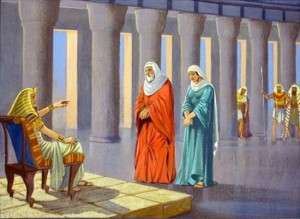 Rebbe Tarfoin says: That night [that Paroy took Soro] was Pesach eve, and G-d brought upon Paroy and his house great plagues, to foreshadow that he is destined to smite the Egyptians with great plagues. Rebbe Yehoshua ben Korcha says: Due to Paroy’s great love, he wrote to her [Soro] all of his assets, whether silver or gold, whether slaves or real estate, and he wrote to her the land of Goishen as an estate, therefore Yisrael settled in the land of Goishen, because it belonged to Soro, our matriarch.
Rebbe Tarfoin says: That night [that Paroy took Soro] was Pesach eve, and G-d brought upon Paroy and his house great plagues, to foreshadow that he is destined to smite the Egyptians with great plagues. Rebbe Yehoshua ben Korcha says: Due to Paroy’s great love, he wrote to her [Soro] all of his assets, whether silver or gold, whether slaves or real estate, and he wrote to her the land of Goishen as an estate, therefore Yisrael settled in the land of Goishen, because it belonged to Soro, our matriarch.
Others suggest that Yoisef selected Goishen because most of populous Mitzrayim was already well settled but for this region of the country which was still crown land. Yoisef figured that settling them in Goishen was safe; the Mitzrim wouldn’t complain too loudly about Hebrews moving in so long as their land wasn’t being expropriated to make room for as many as 70 Jews. In any event, a few pisukim later we will learn that Yoisef either gifted them or somehow gave his family title ownership of the initial land in Goishen they were to occupy.
We will also read that Yaakov, in advance of the big move, sent Yehudah to ‘lihoirois’. What the hec is that? Nu, we are taught that this word means to prepare. Prepare for what? Yehudah was a one man advance team charged with making proper arrangements for the family’s arrival and settlement in Goishen. Sounds very logical, ober says Rashi quoting the medrish (Medrish Rabbah ch 95) azoy: ‘Lehorois’ doesn’t mean to prepare; it means to teach. He was sent to establish a ‘Yeshiva’ from where Toirah could be taught. Ober what was he or anyone to be teaching? Seemingly, most agree that Yehudah was sent by Yaakov to open a yeshiva so that the kinderlach of the kinderlach (grandchildren) would have a place to study the curriculum. What might that entail? Nu, we can speculate that mistama he (Yaakov) wanted to teach the very curriculum that he himself studied over at the yeshiva of Shem and Ever where he was an outstanding student for 14 years. Remember that Rashi? Veyter!
Ober, why would Yaakov want a yeshiva built prior to his own arrival? Nu, efsher we can kler azoy (Oisvorfer pshat): Goishen was mamish a wilderness; empty land with little value. Ober Yaakov Oveenu was a genius and chapped that in order for the real estate values to go up (dramatically), and to draw new people, a neighborhood needed a yeshiva. Also a shul. What to do? Shoin, he sent Yehudah and the yeshiva was built. Mistama, they also -without zoning approvals- built a ‘beis medrish’ which was also de facto a shul and shoin. Initially the Yaakov Ovenu family settled Goishen with fewer than 70 bodies, ober, we will also learn that it was taka in Goishen where the Yiddin would settle and grow and flourish. It was in Goishen where they grew to a nation in-the-making of millions. Seemingly, the land wasn’t the only thing that was fertile, if you chap. It was in Goishen where they would end up being enslaved and it was in Goishen where they lived for 210 years. And we know this how? Because in a few weeks mamish as we get to parshas Boi (Exodus 9:26), we will learn that while the mitzrim were struck with makah #7, the plague of hail, there was no hail at all over in Goishen where the Yiddin lived. And listen to this next posik also from parshas Boi (Exodus 10:23) which, when describing the makah of ‘choishech’ (plague of darkness) will tell us azoy “……but for all the children of Israel, there was light in their dwellings.” And where were their dwellings? In Goishen! Is that gishmak or what?
Grada, this formula of building a yeshiva that is suddenly also a shul, is still in effect ad hayoim hazeh. Why not? Seemingly, it worked for Yaakov Oveenu; why not for us, his children the Bnai Yisroel?
So happens that Goishen is also referred to -in the text mamish- as ‘Goishno’ which spelled using Hebrew letters is comprised of gimmel-shin-nun-hey, the very four letters found on most Chanukah dreidles. Ober with Chanukah already a few days behind us, and though some say that Goishen or Goishno is mamish an allusion to the joyous holiday of Chanukah (avada not yet in existence at that time), and though there is zicher a gishmake medrish to bolster this connection, we will not cover that medrish, nor look back. Grada looking back is not always a good thing as we learned from Mrs. Loit and others. Instead we will skip this pshat and look forward. Looking forward is grada better on many levels.
And to tie this all together, let’s also learn the very last posik of the parsha (Bereishis 47:27) which tells us that the Yiddin flourished in Goishen. “Thus settled Israel in the land of Egypt in the region of Goishen; they acquired property in it and they were fruitful and multiplied greatly.” Ober, when the famine was over -some say it ended five years early in the zichus (merit) of Yaakov Oveenu- did they pack up their bags and return back to Israel? Not! Instead, efsher eying opportunities in the real estate market, they remained put and bought yet more property in Goishen. As stated above, it was in Goishen where the Yiddin lived during their entire stint in Mitzrayim. Ober, why taka didn’t they leave? Let’s avada always remember this was all part of the master plan. After all the machinations put in place by the RBSO to have Yoisef brought – mistama in chains – and then the Yiddin over to Mitzrayim in order to fulfill a prediction He had made to Avrohom -his progeny would be strangers in a land that does not belong to them- He, the RBSO, was not about to have the Yiddin pick up and leave Mitzrayim. Instead, the Yiddin were lulled in by a false sense of security of riches in the real estate market and elected to stay behind. Eventually they were enslaved and shoin, the rest is history. Could that ever happen again? Ver veyst? Shoin, the next time you pass Goishen, any one of the 38 places with that name that dot the United States, think back to your ancestors.
Shoin, the title talked about kissing and making up, let’s now tie that into the parsha. We will close out this week’s review and chapter of Yoisef & his brothers with a few thoughts on; revenge, resentment, lingering anger, reconciliation, kissing and making up. Let’s review perek 45, posik 16 (Bereishis 45:16). It appears some 13 verses following Yoisef’s revelation. “He (Yoisef) then kissed all his brothers and wept upon them; afterwards his brothers conversed with him.” As an aside, if the words ‘Ani Yoisef’ (I am Joseph) haven’t in the past, and don’t yearly, as you hear them read in shul, mamish give you the chills, you need to get in touch with your emotions. Let’s set the scene. In perek 45 posik 3, Yoisef reveals his true identity. We will read that the brothers could not answer him; ‘ki nivhalu miponov’ (they were in a state of shock). Yoisef will continue his soliloquy for 13 additional pisukim. He will try convincing them that in the end, all worked for the good. That he, their younger brother, was now in a position to feed them and the family. It was all part of the RBSO’s plan. Still they said not a word.
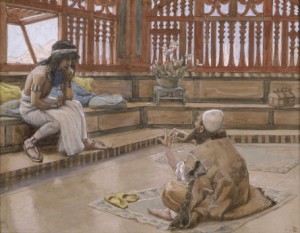 Here stood Yoisef, after a long 22 year exile from his own family. He is now in a position of great power. He was zicher still traumatized from the loss of his mother at an early age, and being ridiculed by his brothers. Twenty two years back, the brothers plotted his murder, sold him into slavery and then sat down to break bread. Yoisef’s saga is mamish heartbreaking and efsher for that reason, he remains perhaps the most well known and admired Toirah personality. Everyone knows his story. Books, movies and plays have been written about Joseph. He gives the downtrodden hope.
Here stood Yoisef, after a long 22 year exile from his own family. He is now in a position of great power. He was zicher still traumatized from the loss of his mother at an early age, and being ridiculed by his brothers. Twenty two years back, the brothers plotted his murder, sold him into slavery and then sat down to break bread. Yoisef’s saga is mamish heartbreaking and efsher for that reason, he remains perhaps the most well known and admired Toirah personality. Everyone knows his story. Books, movies and plays have been written about Joseph. He gives the downtrodden hope.
At this very moment, he could have easily jailed any, or, all them for their ruthless and heartless actions. Flashbacks of himself being thrown naked into a pit filled with snakes and scorpions -according to Rashi and others- then being extracted and sold as many as four different times to different groups of bandits, might be appearing before his eyes. He can likely vividly recall arriving to Mitzrayim -mistama in chains- as a slave to Mr. Potifar’s house where the oversexed Mrs. Potifar had designs on him, and then spending the next 12 years valgering (wallowing) in a dungeon of a jail cell. His ordeal has been nothing less than harrowing. Was this not a perfect time to be exacting revenge? Indeed it was! Ober what did he do and how did he react? And what can we learn about our own behavior from his?
What he did was make peace, and go out of his way to minimize their embarrassment. He let go of the past. His words and actions -kissing each one and crying on each of them- helped them assuage their own guilt. When his words weren’t enough -initially they could not answer him because they were in a state of shock- Yoisef took one more bold step. He kissed each one of them and wept. It was only after the kiss and a few tears that the brothers felt Yoisef’s genuine and sincere willingness to overlook their egregious behavior. Was Yoisef the first to ‘kiss and make-up? Could very well be! And Raboyseyee if that doesn’t work, especially at home with the eishes chayil (wife) after a good fight, some suggest to go one step further and have make-up biah, if you chap. It’s les-man-di-polig (few would argue) that make-up biah doesn’t always work, but it does (at times) provide a few moments of temporary relief. Shoin, let’s get back to the parsha, where were we?
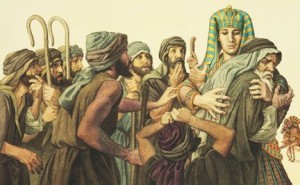 It’s zicher the case that many of us have family and friends that have hurt us. Some have mamish, and others, we so perceive. Everyone knows someone who has not spoken to a parent, sibling or friend for many years. Ober we must stop and think: Did any of them ever sell you into slavery? Plot to kill you? Mistama not! More likely, the broigis (dispute resulting in not talking) stems from something quite petty. They said the wrong thing, didn’t say the right thing, didn’t say anything at all, didn’t write, didn’t call, and the list goes on. They broke a promise, didn’t repay a loan, weren’t there when you needed them, didn’t stick up for you and that list goes on too. It’s endless mamish. Ober how do we react? We eliminate them, we cut them out of our lives. Fartig! Off the email and simcha list; and at times, not even a hello. They are dead to us.
It’s zicher the case that many of us have family and friends that have hurt us. Some have mamish, and others, we so perceive. Everyone knows someone who has not spoken to a parent, sibling or friend for many years. Ober we must stop and think: Did any of them ever sell you into slavery? Plot to kill you? Mistama not! More likely, the broigis (dispute resulting in not talking) stems from something quite petty. They said the wrong thing, didn’t say the right thing, didn’t say anything at all, didn’t write, didn’t call, and the list goes on. They broke a promise, didn’t repay a loan, weren’t there when you needed them, didn’t stick up for you and that list goes on too. It’s endless mamish. Ober how do we react? We eliminate them, we cut them out of our lives. Fartig! Off the email and simcha list; and at times, not even a hello. They are dead to us.
And taka says the great moralist Reb Moishe Chaim Luzatto azoy: “A man is very sensitive to disgrace and suffers keenly when subjected to it. Revenge is sweeter than honey; he cannot rest until he has taken revenge.” It’s seemingly only normal. It’s a natural reaction and maybe on the surface quite normative behavior. Ober, it does appear that Yoisef overcame his nature -seemingly he had this special power. Let’s recall that he also overcame his nature when Mrs. Potifar seduced him daily. He seemingly acted above nature. Or, efsher we can kler that for Yoisef, this response, was his nature. Something to think about.
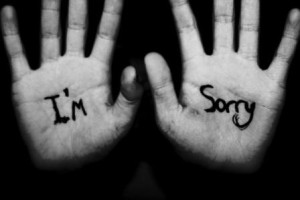 On the other hand, must we mamish forgive as did Yoisef before a sincere apology? Are we entitled to an apology when wronged? Grada we don’t see anything in the text -at least to this point- where the brothers sincerely apologized and demonstrated remorse for their actions. It’s true that just last week they blamed themselves for ignoring his cries from the pit ober did they apologize for their behavior? Not! Moreover, according to the writings, we are taka entitled to an apology and more. Grada, when it comes to tshuva (repentance), we are taught the offender must apologize and make things right. The offender should acknowledge a wrong and express sincere regret. He should also make things right. Ober must we or should we forgive when the offending party does not apologize and or recognize that he/she may have aggrieved us, yet seeks forgiveness? Mistama not though some will argue that we should anyway. Shoin, that’s not for the Oisvorfer to paskin. Yoisef, however, took the high road and went out of his nature and perhaps it’s for that reason that he deserves the appellation of ‘tzadik’ (righteous).
On the other hand, must we mamish forgive as did Yoisef before a sincere apology? Are we entitled to an apology when wronged? Grada we don’t see anything in the text -at least to this point- where the brothers sincerely apologized and demonstrated remorse for their actions. It’s true that just last week they blamed themselves for ignoring his cries from the pit ober did they apologize for their behavior? Not! Moreover, according to the writings, we are taka entitled to an apology and more. Grada, when it comes to tshuva (repentance), we are taught the offender must apologize and make things right. The offender should acknowledge a wrong and express sincere regret. He should also make things right. Ober must we or should we forgive when the offending party does not apologize and or recognize that he/she may have aggrieved us, yet seeks forgiveness? Mistama not though some will argue that we should anyway. Shoin, that’s not for the Oisvorfer to paskin. Yoisef, however, took the high road and went out of his nature and perhaps it’s for that reason that he deserves the appellation of ‘tzadik’ (righteous).
As many of us know, Yoisef is the only Toirah character that is referred to as ‘Yoisef Hatzadik’. And while it is also true that the heylige Toirah refers to Noiach as ‘Noiach ish Tzadik’, and it’s also emes that the heylige Gemora (Buba Basra 11a) will introduce us to a person named Binyomin Hatzadik (who the Gemora tells us distributed charity funds and supported a widow and orphans from his own pocket), still the only Toirah personality to have the appellation ‘Tzadik’ attached to his name, remains Yoisef. Not even Moishe, the great leader of the Yiddin was known as a tzadik. Many suggest that Yoisef earned this title when he rebuffed the sexual advances of Mrs. Potifar who was very drawn to his good looks. Ober, suggests the Oisvorfer azoy: Efsher we can kler that Yoisef truly became the tzadik during the reconciliation with his brothers.
And the bottom line? If those who wronged us mamish fess up and seek forgiveness, we should forgive. And let’s also keep in mind the heylige Gemora (Buba Metzia 59a) which states azoy: One who shames someone in public, has no share in the world to come. If we go out of our way to minimize their pain and embarrassment and allow them to maintain their dignity while apologizing, we might be going out of natural tendencies and might be acting as did Yoisef. He’s not a bad guy to emulate.
A gittin Shabbis-
The Oisvorfer Ruv
Yitz Grossman
